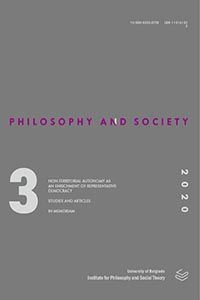Propositions as (non-linguistic) objects and philosophy of law: Norms-as-propositions
Propositions as (non-linguistic) objects and philosophy of law: Norms-as-propositions
Author(s): Guglielmo FeisSubject(s): Language and Literature Studies, Law, Constitution, Jurisprudence, Civil Law, Theoretical Linguistics
Published by: Institut za filozofiju i društvenu teoriju
Keywords: Non-linguistic propositions; legal normativity; nonlinguistic normativity; normative propositions;
Summary/Abstract: The paper distinguishes two accounts of legal normativity. One-source accounts claim there is only one source for legal normativity, which is ultimately linguistic. Two-source accounts claim legal normativity is both linguistic and non-linguistic. Two-source accounts claim we need to go beyond language and beyond propositions taken as linguistic entities, while they are one-source accounts’ main conceptual tool. Both accounts construct propositions as linguistic. There is, nevertheless, a documented analytic tradition starting with G.E. Moore that constructs propositions as non-linguistic entities. Today, the problem of the unity of proposition and structured propositions are highly debated in metaphysics. How does such debates fit into the one-source vs. two-source picture of legal normativity? Why has analytic legal philosophy failed to consider such an option concerning propositions (arguably calling descriptive sentences about norms “normative propositions” did not help)? This paper thus (I) reconstructs the argumentative dynamics between one-source and two-source accounts; (II) presents the less considered philosophical view of propositions as non-linguistic entities and (III) discusses how to include or dismiss such a philosophical view in the one-source/two-source debate on legal normativity.
Journal: Filozofija i društvo
- Issue Year: 31/2020
- Issue No: 3
- Page Range: 406-419
- Page Count: 14
- Language: English

